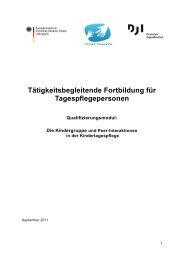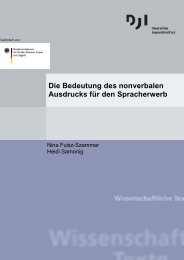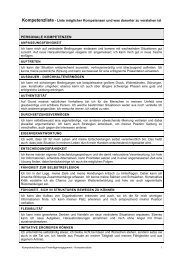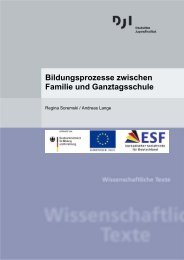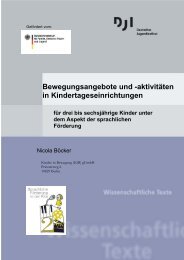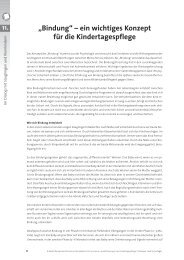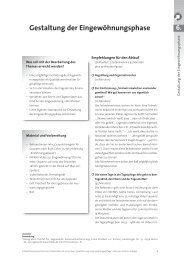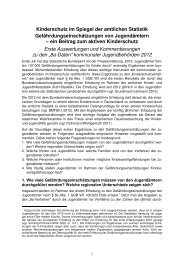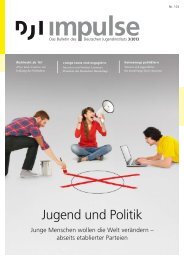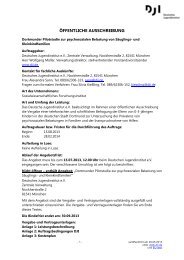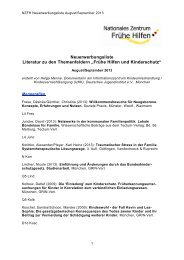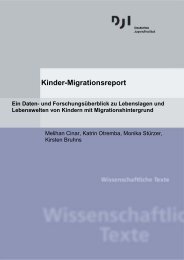download - Deutsches Jugendinstitut e.V.
download - Deutsches Jugendinstitut e.V.
download - Deutsches Jugendinstitut e.V.
Create successful ePaper yourself
Turn your PDF publications into a flip-book with our unique Google optimized e-Paper software.
These facts demand ambitious measures to help these young persons to achieve success<br />
in their educational career and subsequently find employment. The programme “Réussite<br />
educative” is one of these priority measures.<br />
The Programme “Réussite éducative”<br />
The programme “Réussite educative” was created within the framework of the Plan for Social<br />
Coherence (June 2004) and the laws concerning the Encouragement of Social Cohesion<br />
dated 18.1.2005 (paragraphs 128 to 132) and is specially aimed at children between the ages<br />
of two and 16 and their families who are resident in a ZUS or attend one of the prioritised<br />
schools. The aim of this programme is to accompany children and young people displaying<br />
signs of disadvantage from nursery school up to the end of their school career. While<br />
educational partnership measures normally undertake a collective approach, the<br />
programme “Réussite éducative” concentrates on individual development through measures<br />
concerned with various aspects of the child’s school career (education, health, school<br />
attendance, culture, sports, etc).<br />
This more personal supervision of the school career 8 does however not exclude<br />
difficulties encountered from being additionally targeted within a collective framework. The<br />
approach basically necessitates the examination of the individuality of each situation in<br />
connection with the environment or context in which the problems occur.<br />
The programme “Réussite educative” is built on two pillars: the projects for the encouragement<br />
of educational success and the boarding schools for the encouragement of educational success.<br />
Projects for the encouragement of educational success<br />
The projects for the encouragement of educational success represent the practical implementation of<br />
the programme "Réussite educative” on a local level. These projects are embedded in a<br />
legal structure such as a school monetary fund, a social community centre, a local public<br />
educational institution or a public interest group which involves all affected institutions and<br />
associations in its administration council or advisory councils for the school monetary<br />
funds.<br />
With the aid of a partnership which is extended to include all actors involved in the<br />
implementation of the educational policy on a local level, the project for the<br />
encouragement of educational success utilises a common analysis carried out within the<br />
region to formulate a plan of action; the elements of this plan chiefly take place outside<br />
school hours and are not intended to replace existing instruments (local educational<br />
contracts, local accompaniment of schoolchildren, children and youth contracts, etc.).<br />
The contents of the programme can include already existing measures provided that<br />
these are targeted and correspond to the aims of the programme. Possible measures<br />
include: the accompaniment of schoolchildren by associations, particularly by AFEV 9 or<br />
8 This approach is particularly inspired by the PERRY SCHOOL PROGRAMM, an experiment carried out in the 60s in<br />
Michigan (USA) which offered substantial support for children beginning from the age of three to four (and continued up<br />
to the age of 27) which was also based within the family environment of the child. The result was the significant<br />
improvement of integration despite the fact that the results of an IQ test had not improved.<br />
9 Association de la fondation étudiante pour la ville – Student association [Translator’s note]<br />
58



